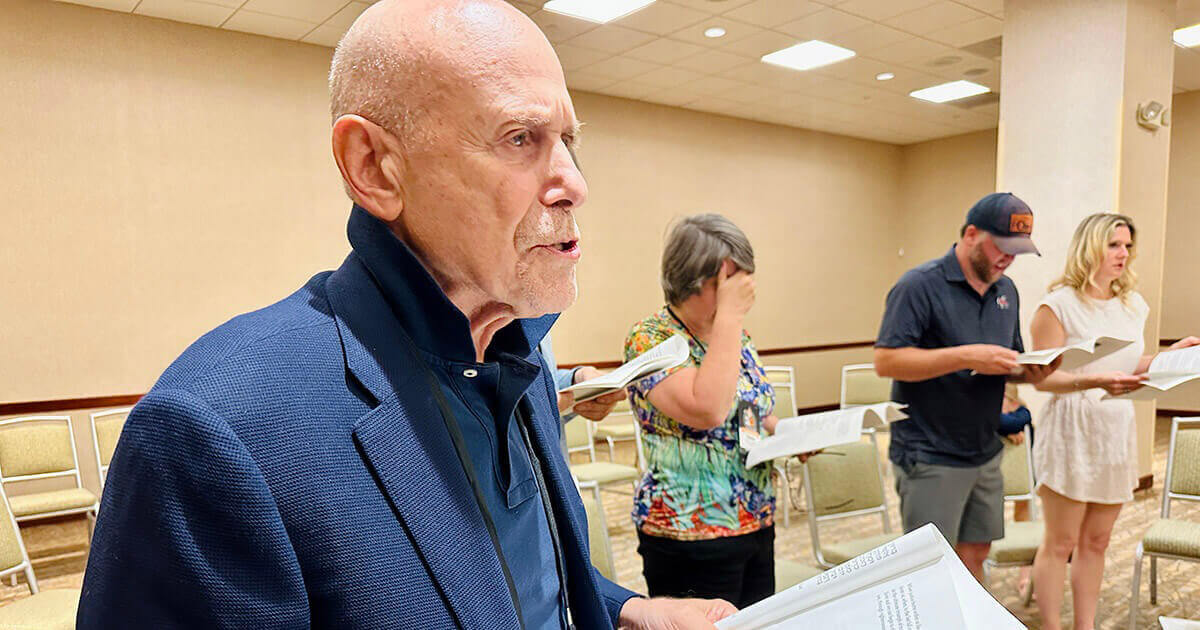As Gaza Pullout Nears, Fears Of Political Violence Increase
TEL AVIV — Israelis greeted the Jewish New Year in an ebullient mood. Unlike last year, when fears of terrorism kept most indoors, they poured into parks, filled Galilee guesthouses and hiked everywhere during the four-day holiday.
Pre-holiday opinion polls showed why: While anxiety over Israel’s future remains high, Israelis’ sense of personal safety is the highest in years. They even allowed themselves the luxury of a crippling public-sector strike that closed everything from post offices to airports, seemingly secure that the nation could risk a family feud.
No crackdown is complete, as Israelis were reminded by Wednesday’s suicide bombing in a Jerusalem suburb, which left two dead and 15 wounded. But that attack, like other recent ones, served to underscore the terrorists’ inability to stage mass killings of the sort that marked the intifada’s first three years.
Most Israelis credit the army and the Shin Bet security service, which have gained an operational advantage and largely paralyzed the armed Palestinian groups through effective intelligence and tough preventive measures.
But while the public relaxed, the security establishment entered the year preoccupied with a new threat for which it had few answers: the growing specter of internal violence — including threats against the prime minister and warnings of “civil war” — as debate heats up over Ariel Sharon’s Gaza disengagement plan.
Holiday supplements in the main newspapers were filled with dire analyses of the polarized political atmosphere, which both sides — supporters and opponents of the disengagement plan — said was reminiscent of the incendiary mood in 1995, just before the assassination of Yitzhak Rabin.
Then as now, settlers and their supporters accused the prime minister of Nazi-like behavior and called on soldiers to refuse orders that involved pullbacks in the territories. Then as now, the prime minister’s supporters accused his critics of incitement or worse, while the critics claimed that the incitement charge was a tool to silence dissent.
One striking difference between the two periods is the role reversal of Sharon, who led the opposition in 1995 and is now its target, as he acknowledged in pre-holiday interviews.
In a startling recapitulation of the Oslo period, one right-wing rabbi, Yossi Dahan, a former member of Meir Kahane’s Kach movement, said last week that he would be willing, if asked, to carry out a pulsa de-nura, a Kabbalistic curse condemning Sharon to death. Extremists performed pulsa de-nura ceremonies against Rabin in the weeks leading up to his assassination in 1995. Attorney General Menachem Mazuz this week rejected calls to indict Dahan on charges of incitement.
More specific threats were aimed at Yonatan Bassi, head of the prime minister’s Disengagement Administration. A member of an Orthodox kibbutz, he has been under intense personal attack since he agreed to head the administration last month. Posters carried in a protest rally in Jerusalem recently featured his picture with the caption “We will not forget,” and he has reportedly received numerous telephone threats. But the Shin Bet and police have been incapable of finding and arresting any real plotters against Bassi or Sharon, if there are any.
One prominent rightist, Nadia Matar, of the militant Women in Green, prompted a furor when she attacked a letter prepared by the government to inform settlers slated for evacuation that they can begin to apply for compensation in the coming weeks. She said it was reminiscent of letters sent to Jews in Berlin by Nazi authorities, ordering them to report for relocation to concentration camps. That brought condemnations from across the spectrum, including Yad Vashem, Israel’s national Holocaust memorial.
Perhaps most startling was a petition signed by some 150 prominent figures, including historian Benzion Netanyahu, father of Sharon’s finance minister, describing the planned evacuation of settlers as a “crime against humanity” and urging soldiers “to listen to the voice of their national and human conscience” and refuse to carry out evacuation orders.
Another Netanyahu family member, brother-in-law Haggai Ben-Artzi, himself a settler, declared that “only the Nazis had transferred Jews,” and intimated that there would be violent and even armed opposition.
Opponents of disengagement draw other comparisons to the Oslo period, arguing that Sharon, like Rabin, flouted democratic norms by breaking election promises and adopting radical policies without a popular mandate.
One leading commentator, Amnon Dankner, editor-in-chief of the daily Ma’ariv, argued in a front-page editorial that Sharon was “pushing the disengagement plan with a blunt, crude and ugly trampling of democratic values and majority decision,” and, like Rabin, would be partly to blame for the consequences.
In Dankner’s view, the way to restore legitimacy is to submit the disengagement plan to a national referendum, a call endorsed by Netanyahu and other Sharon rivals.
Sharon has flatly dismissed calls for a referendum. In his pre-holiday interviews, he questioned the motives of Likud critics like Netanyahu and called the incendiary rhetoric of the right “extremely grave.” But he said he would not be deterred from proceeding with the disengagement plan.
As currently planned, the disengagement from Gaza and the northern West Bank is to begin in mid-2005. Sharon indicated last week that the schedule might be moved up and that the process would be completed by the end of 2005.
Operational planning for the disengagement has been divided among the police and the army, which are in charge of evacuating settlers and securing new Israeli lines, and the Shin Bet, which is charged with foiling insurgent activities by the plan’s Jewish opponents.
Officers in the field say the complex relations between the troops and the settlers, whom they now protect and will soon be ordered to evacuate, will compound the difficulties of implementing the plan.
“I am a religious person, and on weekends I go to pray at the synagogue at Gush Katif,” said Colonel Shuki Rinsky, commander of the Southern Brigade in Gaza, in an interview with the Forward. “I have friends here from school. I know families in which four generations live here.”
Nonetheless, the officer said, he expected his troops to carry out orders. “The settlers’ job is to resist,” he told the Forward. “Ours is to carry out our orders. We will cry as we do it, but we will carry them out.”
Field commanders say the unprecedented intensity of the fighting in Gaza in the last two years has wrought changes in the fighting profile of the Israeli army. “On a quiet week, we have over 40 firing or bombing incidents here,” Colonel Eyal Eisenberg, commander of the Givati Brigade, the main combat unit in Gaza, told the Forward recently. “On a busy week, the number is doubled. Only very few soldiers haven’t taken part in a firefight.”
Eisenberg said the fighting has hardened the army’s will to do its job. “I have company commanders who were born here,” he said. “I expect them to evacuate their own parents, if needed.”
A message from our editor-in-chief Jodi Rudoren

We're building on 127 years of independent journalism to help you develop deeper connections to what it means to be Jewish today.
With so much at stake for the Jewish people right now — war, rising antisemitism, a high-stakes U.S. presidential election — American Jews depend on the Forward's perspective, integrity and courage.
— Jodi Rudoren, Editor-in-Chief






















